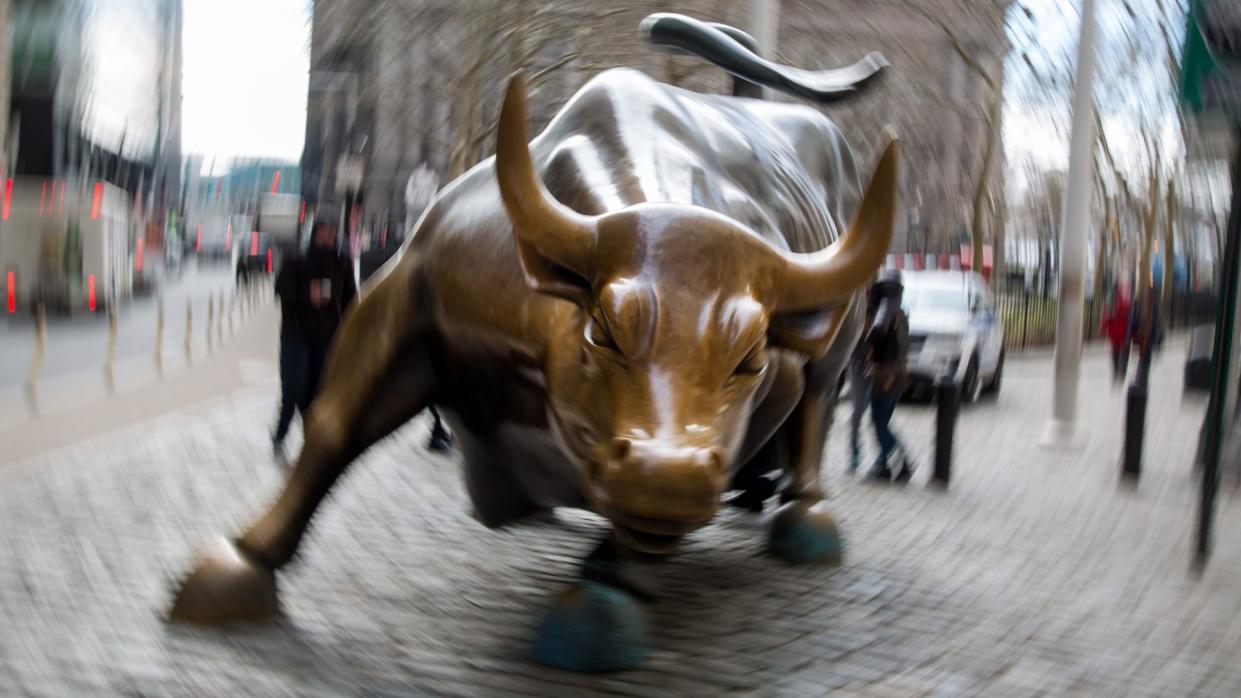How the world economy learned to live with the drama

It seems that geopolitical crises are 10 a penny in 2024, with concerns around the global financial system, an inflation crisis in the West, deflation in China and half the world's population heading to the polls.
There is "little wonder that analysts speak of 'polycrisis', 'hellscapes'; and a 'new world disorder'", said The Economist. "And yet, for the moment at least, the world economy is laughing in the face of these fears."
At the start of 2023, there was a "widespread fear that the global economy would endure a tough recession as a result of central banks responding to sharp rises in prices by raising interest rates from record lows", said The Times.
The reality has been very different, with global GDP growing by 3% in 2023 and the early signs are that it will continue this year and into next.
'Soft landing'
Just this week, Kristalina Georgieva, the managing director of the International Monetary Fund (IMF), told the World Government Summit in Dubai that the global economy would emerge relatively unharmed from the inflation crisis and its accompanying rapid increases in interest rates.
This is the so-called "soft landing that politicians, economists and policymakers have been dreaming of", said The Times "fuelled mainly by a robust expansion in GDP in the United States".
While some countries around the world have struggled to recover from the economic setbacks brought on by the Covid pandemic – notably China, Germany, the UK and Brazil – the US has "emerged particularly strong", said the BBC's New York correspondent Erin Delmore. The US stock market is at record highs, and with an economy posting a 3.3% gain in the last quarter of 2023, a strong labour market and falling inflation, the world's biggest economy "has outpaced its counterparts in Europe and elsewhere".
It has achieved this, said Delmore, by pouring trillions into the economy, keeping unemployment low through its flexible jobs market, and maintaining its energy independence.
'Oblivious to the new world disorder'
There are, of course, plenty of things that could upend this new-found optimism, including developments in the war in Ukraine, attacks in the Red Sea, escalation in the Middle East, a slowdown in China, tensions over Taiwan, and the re-election of Donald Trump and subsequent collapse of Nato.
But for now, "the consensus forecast for the global economy remains cautiously optimistic", said Kenneth Rogoff, former chief economist at the IMF, in The Guardian.
The reason the global economy is "so oblivious to the new world disorder" is, said The Economist, partly due to the coordinated interest rate hikes by central banks, which have managed to bring down inflation from a peak of more than 10% across the rich world to around 6%. "This not only raises households' purchasing power; it also raises their spirits" said the newspaper, with consumer confidence in the world's richest nations rising sharply since an all-time low in 2022.
There is also "a more intriguing possibility", said The Economist, that "after so many shocking global developments, the world no longer minds chaos as much as it once did".
Yes there is a "widespread belief that the global economy is headed for a soft landing", concluded Rogoff, but "as the world confronts yet another turbulent year, policymakers and analysts need to bear in mind that a soft landing means little if the runway is in an earthquake zone".

